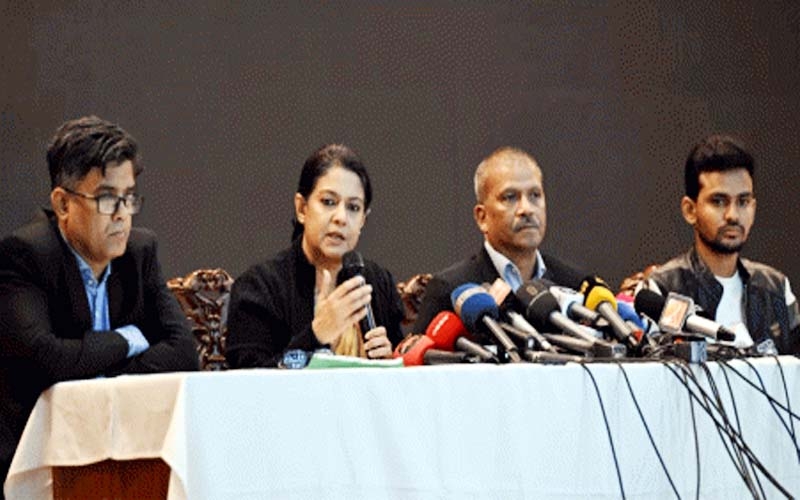- Death toll from central Israel strike rises to 5 |
- DSE sinks 138 points on broad sell-off; CSE also tumbles |
- Inside story of a roommate murder after quarrel in Dhaka |
- Jamaat condemns Khamenei’s killing, holds protest rally in Dhaka |
- Iran to pick next supreme leader in ‘one or two days’ |
Formal Talks with Political Parties on Reforms to Begin in Feb

The interim government is set to initiate formal talks with political parties in February to forge a consensus on proposed reforms aimed at strengthening the country’s governance system. Environment Adviser Syeda Rizwana Hasan and Law Adviser Asif Nazrul revealed the plan during a press briefing held after the submission of four reform commission reports.
Rizwana Hasan suggested that the talks could begin by mid-February, depending on the progress of the coordination work among the reform commissions. Asif Nazrul, however, stated that if the coordination efforts are completed ahead of schedule, formal discussions with political parties could commence in the first week of February.
The four reform commissions—Constitutional Reform, Electoral Reform, Police Administration Reform, and Anti-Corruption Reform—submitted their detailed reports to Chief Adviser Dr Muhammad Yunus at his office. These reports contain recommendations for substantial changes in the state system, focusing on transparency, accountability, and the overall effectiveness of the government institutions.
The advisers noted that the reform commissions have been granted an additional month to address overlapping issues and finalize their proposals. The full reports from all six reform commissions, including those on Judiciary Reform and Public Administration Reform, will be made available to the public by January 31.
Asif Nazrul outlined the reform process, which will unfold in four distinct phases: the preparation of reform reports by the commissions, formal talks with political parties to reach a consensus on the proposals, the formation of necessary laws and policies based on that consensus, and the final implementation of the agreed reforms. To facilitate these talks, a national consensus commission, led by Chief Adviser Dr Muhammad Yunus, will engage with all relevant stakeholders, including political parties and civil society groups.
The law adviser stressed that the success of the reform process hinges on the political parties’ willingness to find common ground on key issues. He also emphasized that the timeline for the national elections is closely tied to the level of agreement reached on the reforms. If political parties are willing to accept a minimum set of reforms, elections will be held this year. However, if more comprehensive reforms are needed, the election will be postponed until June 2026.
In addition to the coordination work, the government is working on a roadmap that will outline which reforms should be prioritized for immediate implementation and which can be deferred for later. Rizwana Hasan expressed confidence that this roadmap will be ready within a month, providing a clear path forward for the country’s reform agenda.
Asif Mahmud, the Local Government, Rural Development, and Cooperatives Adviser, reiterated that the reform commissions have addressed the aspirations of the people, particularly those that emerged from the July Uprising. He emphasized that the structural reforms envisioned by the commissions are essential to fulfilling the public’s expectations and ensuring long-term stability.
The government is committed to implementing these reforms in consultation with all stakeholders. The advisers noted that the reform process will be inclusive, with discussions held with political parties, civil society, and other relevant groups. Once a broad consensus is reached, the government will take full responsibility for implementing the reforms, with the expectation of cooperation from all sectors of society.
In conclusion, the advisers underscored the importance of maintaining the spirit of national unity and ensuring that the reforms reflect the collective will of the people. They expressed hope that the upcoming talks with political parties will pave the way for a new era of governance in Bangladesh, one that is transparent, accountable, and responsive to the needs of the population.

